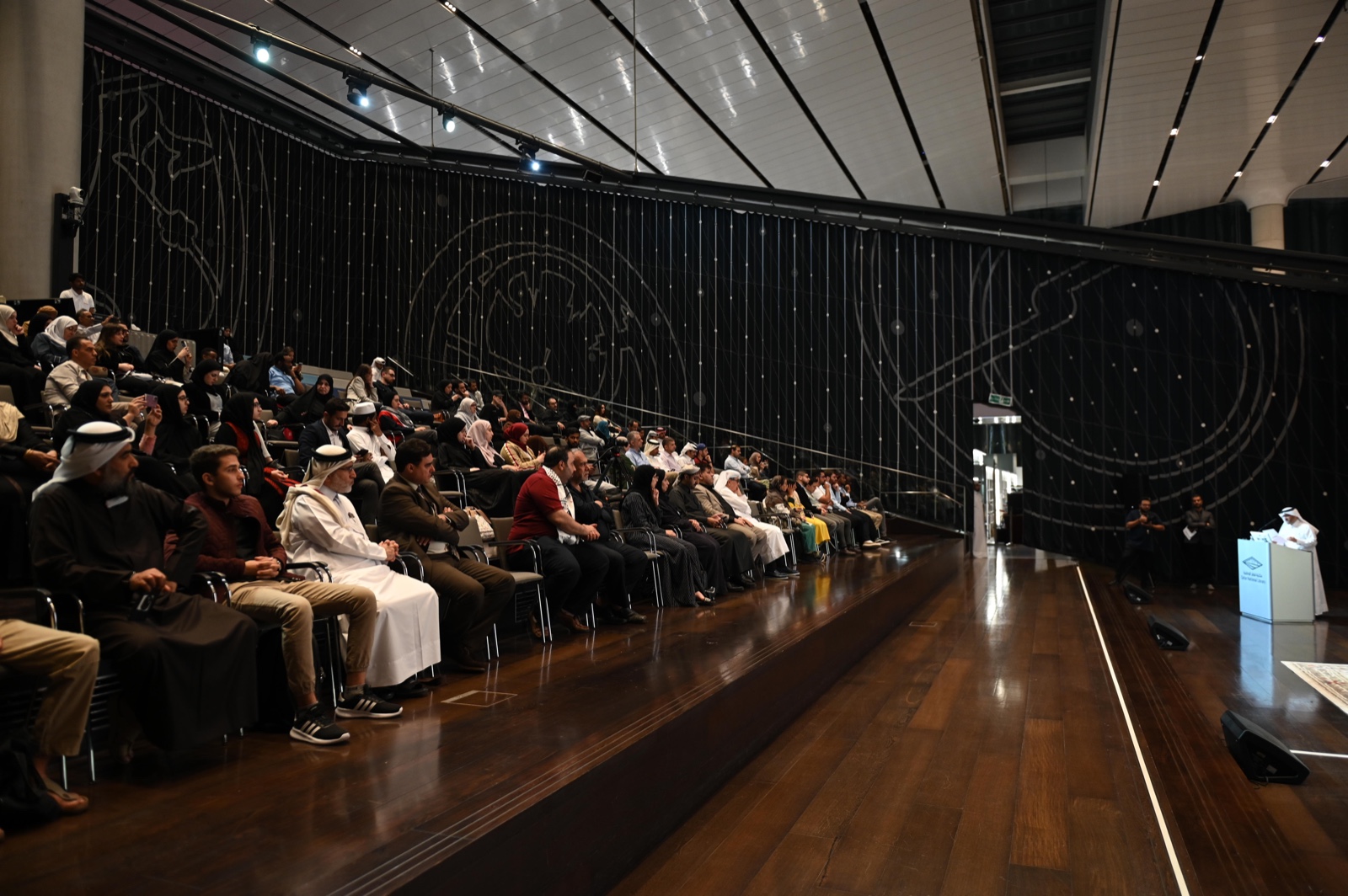The evening of verse and solidarity with Gaza draws attention to the ongoing struggle.
The Qatar National Library (QNL), in collaboration with Hamad Bin Khalifa University (HBKU), hosted a culturally enriching poetry evening on Sunday.
The event, titled ‘If they ask you about Gaza’, served as the fourth chapter in the esteemed Cultural Salon series, spotlighting the resilience and struggle of the Palestinian people against the ongoing assault on Gaza.
The evening had celebrated poets like Anas al-Dogheim and Ahmed al-Muftah, who captivated the audience with their emotive verses set against the melodious backdrop of the oud.
Their poetry, touching on themes of endurance and resistance, was complemented by a curated exhibition showcasing significant works from the library’s collection on the Palestinian cause.
Al-Dogheim, renowned for his contributions to Syrian poetry and literature, and al-Muftah, a distinguished Qatari poet and cultural figure, shared the stage to lend their voices to the Palestinian narrative.
Their collaborative effort underscored the evening’s aim to highlight the enduring spirit of the Palestinian people.
Dr. Hamad bin Abdulaziz al-Kawari, Minister of State and President of Qatar National Library, reiterated the significance of the Palestinian cause to the Arab and Muslim world.
He emphasised the role of poetry and the spoken word in mobilising public opinion and reaffirming the values of freedom, dignity, and independence. Dr. al-Kawari also acknowledged the importance of addressing digital content challenges and biases that affect the Palestinian discourse.
Al-Muftah, reflecting on the event, expressed his honour in standing alongside al-Dogheim to affirm their collective support for Gaza. His admiration for al-Dogheim’s artistic prowess highlighted the evening’s theme of unity and resistance through art.
Al-Dogheim, for his part, praised the Qatar National Library for its initiative in using poetry as a medium to condemn aggression and support the Palestinian cause.
He lauded the Cultural Salon series for its contribution to the Arab intellectual landscape and its role in utilizing cultural expression as a form of resistance and solidarity.







